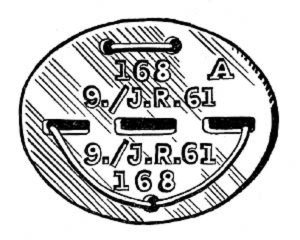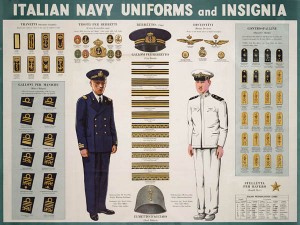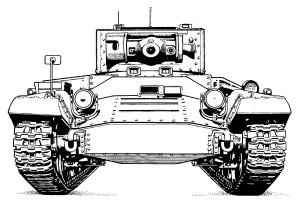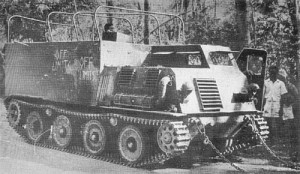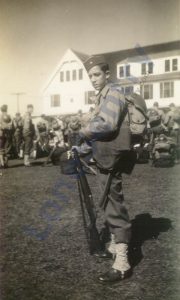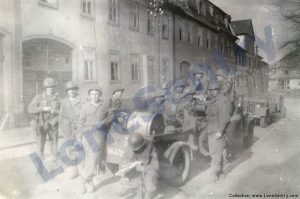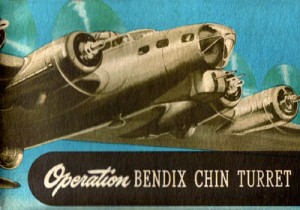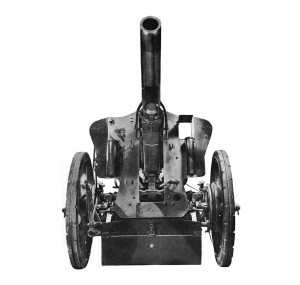The following opinions are from German General Leutnant Linnarz, commander of the German 26th Panzer Division in Italy, concerning Allied airpower and its effects on German forces. Source: Defeat, Headquarters Army Air Forces, Office of the assistant chief of air staff–2, Washington, D.C., January 1946. Defeat was prepared by the Headquarters Army Air Forces, Mediterranean Theater of Operations, Intelligence Section to record the views of Allied air power from those who were on the receiving end.
OPINIONS OF LIEUTENANT GENERAL LINNARZ
Commanding General of 26th Panzer Division in Italy26 JUNE 1945.
The following report is the result of several conversations with General Leutnant Linnarz who was the Commanding General of the crack German 26 Panzer Division in Italy.
The Role of Air Power
“Single battles, in my opinion, are not decisive; they are only apparently decisive. The same thing is true of air battles. The complete havoc wrought by Allied air power toward the end of the war when we no longer had an air arm worthy of the name, may give an entirely false impression of the role of air power in deciding the victory. Such overwhelming air supremacy is not so much the cause of Germany’s defeat, but the result and visible evidence of Germany’s defeat. The war was actually decided long ago, and if the German government had given up earlier, before air power had devastated the German cities, and before the Eastern and Western land armies had joined, the results of great decisive air and land battles preceding Germany’s military collapse would not have been known. The great destructive capacity of giant air armadas would not have been realized.
“In the same category as the overwhelming Allied air and ground offensive toward the end of this war are the battles of Vittorio, Venato and the rapid Allied advances in the Balkans at the end of the last war. There are no more battles in the old classic sense. In France we styled our reports in the old manner. The result of the impression was thus one of gigantic land battles and clever generalship, a totally false impression. In my opinion, the Allies are in danger of making the same erroneous interpretations of air victories.
“Nothing could be more erroneous than to belittle air power, but the fact remains that the modern war is determined, fought, and won by a combination of land, sea, and air power, backed by industry, manpower, material, and the brains of the nation’s overall strategic leadership.
“The basic conception of winning a war through strategic air power is sound. Historically, the strategic objective of any war has been to destroy the enemy’s armies in the field. With increasing technological development however, and the military fact that wars are no longer exclusively decided by generalship and battles, but by a nation’s material might and war potential, it is obvious that in the future, the first strategic objective in the war can be not the destruction of the armies in the field, but the destruction of the enemy’s resources and war arsenals. Without these, the armies in the field are doomed to eventual defeat. A war might conceivably start with the attempt to destroy a nation’s material power through employing a powerful weapon of long range striking power. In this war, such a weapon was the long range heavy bomber. In the future war it could conceivably be a type of perfected V bomb. Or instead of striking air blows at the enemy’s war materials, you could conceivably wage a powerful land campaign with the sole purpose of conquering new raw materials, and diminishing the enemy’s capability to carry on the war and simultaneously increasing your own.
“This was not the case in the war either on your side or on ours. In my opinion, you might have won the war through strategic bombing alone–granted adequate bases tactically secure. Since you wanted to end the war quickly, you did not rely on strategic bombing alone; you fought the war in combined operations on land, sea, and air. At the beginning of the war we failed to see that the material power of the coalition against us was strong enough to destroy our war industries by strategic air attacks, even if we took the whole continent. As our leaders couldn’t see this, and as you were unwilling to rely entirely on strategic bombing, you brought the war to an early and successful close by both strategic and tactical use of air power.
“In the future, a nation may wage war only if it is secure in its own industrial centers and is able to cripple or take by storm the industrial and raw material centers of the enemy.
“The use of strategic air power is closely related to the tactical employment of air power and both are necessary to end a war quickly. Strategic bombing of the centers of aircraft production seriously reduces the number of aircraft available for tactical operations, and through defensive dispersal of fighter aircraft to forestall surprise attacks by strategic bombing, the strength of aircraft available for tactical operations is weakened at all points.
“The collapse of the GAF was complete. As soon as you can not afford to fill strategic needs because of tactical losses, you are beaten.”
Relative Value of Air Attack and Artillery Fire
“The effect of air bombardment on ground troops is not so great as commonly imagined, as the troops can always move out of their shelters immediately after the air raid. Men accustomed to continuous artillery barrages for days on end are not likely to be absolutely demoralized by an air bombardment lasting 15 minutes. An experienced soldier knows that an air attack will be over in a few minutes at the most, while the shell fire may continue for hours. If he has a foxhole or ruin to protect himself he can sit out the air bombardment without moving from his position and with little effect on his morale, viz: Cassino. The effect of bombing attacks against green and inexperienced troops is of course more demoralizing.
“The really demoralizing experience for the ground soldier is the sight of the artillery-directing aircraft circling over our positions for hours. You know for a certainty that if you make one move, you will have a shell in your foxhole within two minutes. In the position of warfare which was so characteristic of the Italian front, the troops were afraid to move about, and when the fighting started they were reluctant to come out and fight, feeling that they were being constantly observed.
“In an aerial bombardment you do not feel that an attack is personally directed against you. Jabos (fighter bombers) and artillery-directing aircraft on the other hand seem to have a personal grudge against you. Strafing attacks were particularly demoralizing because finally your Jabos began strafing anything that moved–even my orderly collecting vegetables.
“Toward the end of the war, movement in vehicles and on foot became almost impossible and during the last stages of the battle of the Appenines I reported that our troops could accomplish movements only during a three-hour period at night. At dawn their positions were frozen by Jabos and artillery directed from the air.”
German Countermeasures to Offset Allied Air Supremacy
“It is easy to form a false impression of the role of air power, since toward the end of the war our own air arm had practically ceased to exist, and you were free to operate unhindered against our ground forces. In the last round we were fighting only with ground forces against your overwhelming might in three mediums–land, sea and air.
“Possibly naval tactics have been more influenced by the new air war than the ground forces have been. In Sicily we could not attack your aircraft carriers near the shore and our own air force was so small that your carrier-launched planes could destroy many of our aircraft on the ground. It was my task to check the Allied invading forces, who had three weapons at their disposal (i.e. land, sea, and air forces), with one weapon, my two ground divisions. We had to contend with troops dropped from the air before the actual invasion, with troops landed from the sea, with naval guns and naval aircraft, and it proved to be an impossible task.
“There were no coastal batteries or fortifications of importance so our only real means of delaying your advance was our 88-mm AA gun. We used it against your aircraft, we employed it against your troops and tanks and during our retreat along the Messina road, we used it as a coastal defense gun to prevent an outflanking movement from the sea. Without this threefold use of the 88-mm gun we could never have retrieved our land forces in such number, nor saved the quantity of material we did.
“In evacuating troops from Sardinia and Corsica, I again faced the difficult task of fighting back with a purely land army against Allied triple threat forces–U-boats, planes, and an invading land army. To evacuate my one and one-half divisions I was forced to rely on flat landing barges and transport planes without fighter escort. My only defensive weapon against your land-sea-air forces was large concentrations of AA batteries around the harbors. With these I succeeded in partially checking the effectiveness of the air attacks, and forming fairly effective ground batteries.”
The Effect of Allied Air Activity on Tank Warfare
“Allied air attacks compelled us to execute most of our tank movements at night and remain concealed by day. Troops were very reluctant to cross streams by day in spite of the fact that our camouflage was good. Jabos were sometimes successful in seeing through our camouflage and destroying our tanks.
“Air attacks against our tanks became more and more effective with the decline of our own Air Force and as soon as Allied air superiority was complete they were able to pick out and forestall any tank movement through:
“a. Air reconnaissance,
“b. Artillery-directing aircraft,
“c. Fighter bombers.
“From the beginning of the battle of the Po (13 April 1945) our tanks could not move even halfway freely by day. Earlier in the war, at Cassino for instance, our tanks were still able to move about individually, protected by trees, ruins, and so forth. It must be admitted, however, that at Cassino our tanks were used separately as a sort of mobile artillery and not in large scale movements like in Russia.
“With the attainment of air superiority on your part, the fact of tank units operating in masses was predetermined. Very large tank units could not, of course, be used in Italy by either side because of the terrain, but our relatively small scale movements were constantly harassed by your air attacks and also discovered by artillery-directing aircraft.

